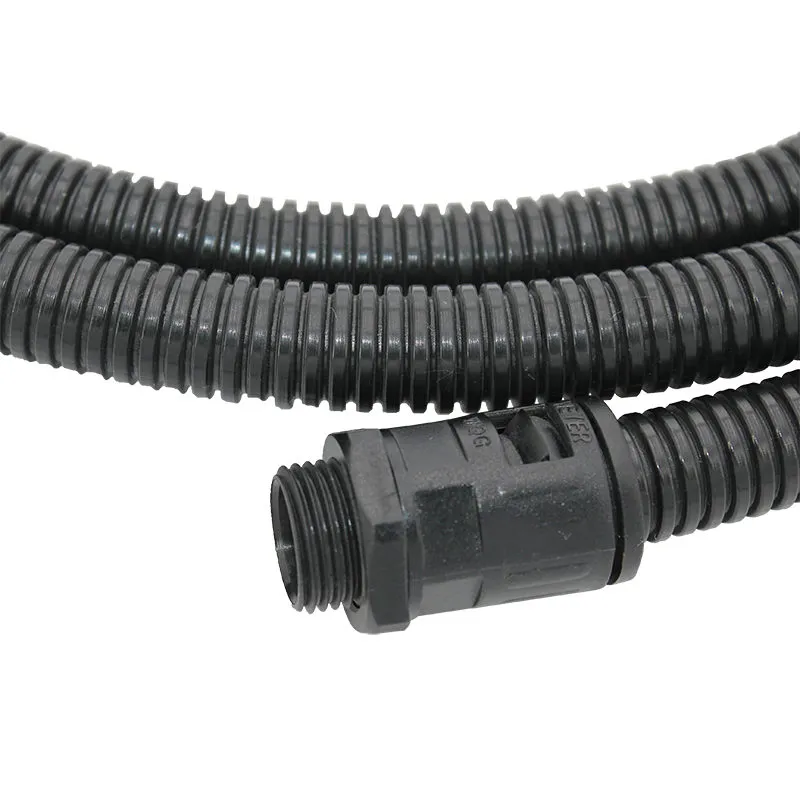cable carrier manufacturers
The Role of Cable Carrier Manufacturers in Modern Industries
In today's technologically advanced world, cable carrier manufacturers play a crucial role in ensuring the efficient and safe operation of various machinery and equipment across numerous industries. A cable carrier, also known as a drag chain, is an essential component designed to guide and protect moving cables and hoses in applications such as robotics, automation, construction machinery, and even in the aerospace industry. With the growing demand for automation and the increasing complexity of machinery, the importance of these manufacturers cannot be overstated.
Understanding Cable Carriers
Cable carriers are designed to house and organize cables, allowing for unrestricted movement while preventing wear and tear. They are typically made from durable materials such as plastic, steel, or aluminum, and can be custom-molded to suit specific applications. Depending on the environment in which they operate, these carriers can range from lightweight designs for simple tasks to heavy-duty constructions for industrial applications, capable of withstanding harsh environmental conditions.
The primary functions of cable carriers include reducing cable tangling, preventing abrasion and damage to cables, and ensuring the smooth operation of machines by allowing cables to move freely without being pinched or caught. As machinery becomes more sophisticated, the requirement for effective cable management systems becomes even more vital, creating ample opportunities for cable carrier manufacturers to innovate and expand their product lines.
Industry Applications
Cable carriers are utilized in a wide array of industries, including manufacturing, automotive, robotics, and the entertainment sector. In manufacturing, for instance, cable carriers help streamline operations by facilitating the movement of equipment and ensuring the reliable performance of machine tools. In robotics, they are integral for the seamless functioning of robotic arms, where precise cable management is essential for performance and safety.
Additionally, in the automotive industry, the use of cable carriers ensures that electrical systems function correctly, eliminating potential downtimes caused by cable malfunctions. In the entertainment sector, particularly in theaters and concert venues, cable carriers are employed to manage stage lighting and sound equipment, allowing for dynamic performances without the risk of cable snags or damage.
cable carrier manufacturers

Challenges and Innovations
As industries evolve, cable carrier manufacturers face several challenges, primarily driven by the need for greater efficiency and sustainability. The demand for lighter, more durable materials has led to an increase in research and development efforts within the industry. Manufacturers are exploring advanced materials such as composites and lightweight metals, which provide the necessary strength without adding excessive weight.
Moreover, as automation becomes more prevalent, the design of cable carriers must adapt to accommodate the increased complexity of wiring systems. Advanced cable management solutions that improve flexibility and reduce maintenance requirements are being developed. Manufacturers are also looking into smart cable carriers that incorporate sensors and IoT technology to monitor the health of system components, thereby enabling predictive maintenance and reducing downtime.
Future Outlook
The future of cable carrier manufacturing looks promising, with significant growth projected driven by the expanding automation market and increasing demand for reliable cable management solutions. As industries seek to enhance their operational efficiency and minimize risks, cable carriers will remain an integral part of modern machinery.
Sustainability is also becoming a central theme in the manufacturing process. As businesses seek to reduce their environmental footprint, cable carrier manufacturers are investing in eco-friendly materials and processes, ensuring that their products meet the sustainability standards expected in the contemporary marketplace.
Conclusion
Cable carrier manufacturers are essential players in the drive towards more efficient and autonomous industrial operations. Their innovations not only support existing machinery but also pave the way for the future of technology applications across various sectors. As they continue to adapt to new challenges and evolve alongside advancements in automation and material science, cable carrier manufacturers will undoubtedly play a pivotal role in shaping the future of industries worldwide. Whether in manufacturing, robotics, or entertainment, the contributions of these manufacturers are fundamental to achieving operational excellence and sustainability in a rapidly changing world.








